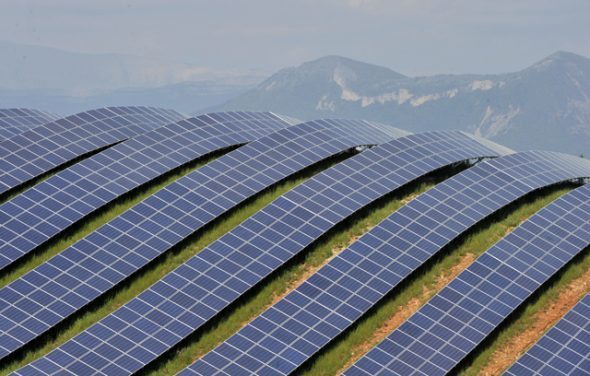France has announced the winners of the nation’s latest round of renewable energy auctions, including 12 solar projects totalling just under 100MW of combined capacity commissioned to replace a decommissioned nuclear power plant.
The latest round of winning tenders, representing around 1.7GW of wind and solar projects, was announced this week by the government alongside new measures to support developers struggling due to Covid-19, including extended commissioning deadlines.
France’s minister of the ecological and inclusive transition, Elisabeth Borne, announced 288 PV and wind projects allocated through various recent auction rounds – a massive 253 of those being solar projects, ranging from large-scale PV farms, to “innovative PV” installations, and rooftop arrays.
Of particular significance, 12 solar projects totalling 94.2MW of capacity were selected to be built at the Fessenheim nuclear power station in France’s Haut-Rhin department, which is in the process of being decommissioned – its second and last reactor will be shut down on June 30.
The allocation – which attracted bids averaging between €55.78-98.5/MWh ($A99.80-176.24/MWh) – was the result of the second round of France’s Fessenheim scheme, which ultimately aims to install 300MW of solar in the vicinity of the 41-year-old nuclear station owned by French energy giant EDF.

Currently, France gets about 75 per cent of its electricity from nuclear plants, but many – like Fussenheim – are old and increasingly unreliable. On top of that, the government has a target of reducing its nuclear energy dependence to 50 per cent by 2035, while ramping up its installed solar capacity from 9.1GW today to 35.6-44.5GW by 2028.
As PV-Tech reports, the nation’s bid to swap out old nuclear with solar has gained significant momentum, fuelled by a combination of increasingly cost-efficient renewables and the stubbornly high cost of building new nuclear – exemplified by EDF’s Hinkley Point C debacle in the UK.
Add to that concerns about the safety and reliability of the technology – particularly around aged facilities like Fussenheim – and solar and wind plus supporting energy storage technologies offer an obvious replacement.
The power plant closure is a significant event for France – Borne hailed the February shut-down of Fessenheim’s first reactor as a “historic step” – as it marks the first time one of the nation’s 58 nuclear reactors will be permanently removed from the country’s power grid.
The move has also been welcomed by France’s nearest neighbours, Germany and Switzerland, whose officials have reportedly long demanded the closure of Fessenheim.
“The time has finally come,” said German Environment Minister Svenja Schulze in February, who also said that shutting down Fessenheim would make Germany “safer.”
“Nuclear power is not a climate savior. It is risky, expensive and leaves behind radioactive waste for thousands of generations,” she said.










